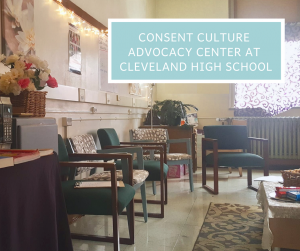86
students at all 9 Portland Public high schools received confidential advocacy last school year
classroom-based workshops
Because few schools have the resources to train educators to teach an eq uitable relationship curriculum, our expert team works within classroom to provide students with critical information about available resources, building equitable relationships, and understanding and practicing consent.
uitable relationship curriculum, our expert team works within classroom to provide students with critical information about available resources, building equitable relationships, and understanding and practicing consent.
On average, we spend 4-6 hours with each group of students, offering a series of workshops that reinforce learning and change.
The students we reach show dramatic improvement in their ability to identify the signs of domestic violence and go out into the world ready to live healthier, safer lives. Learn more about this innovative program.
confidential advocacy services in schools

One in three adolescents will experience some form of abuse. But many young people are afraid to ask for help because school staff are mandatory reporters. This can prevent teens from getting the help they need and deserve in the wake of domestic and sexual violence.
We believe that students deserve safe and nonjudgmental support, as well as confidentiality and control over the information they share. That’s why we’ve partnered with Volunteers of America Home Free, the Oregon Health-Based School Alliance, and Portland Public Schools to provide Confidential Advocacy at Cleveland and Franklin High Schools through the Healthy Teen Relationships Act Implementation Project. Confidential Advocates work one-on-one with students to build trusting relationships and connect teens with resources, while maintaining their safety and confidentiality. Last school year, over 85 students received confidential advocacy!
This pilot is unprecedented in the United States and is currently the only public school-approved program that provides confidential advocacy services to youth. We are honored to support Prevention Education services beyond the classroom, and provide students with one-on-one support, while working with teachers and parents to create a school-wide culture that promotes safe and equitable relationships.
Click here to learn more about this exciting program!
inclusion for all students
We work to ensure that all classroom and community presentations are inclusive of all gender identities and sexual orientations, and to address the needs of lesbian, gay, bisexual, transgender, two-spirited, queer, and questioning youth who are at-risk for or have already experienced dating and sexual violence.